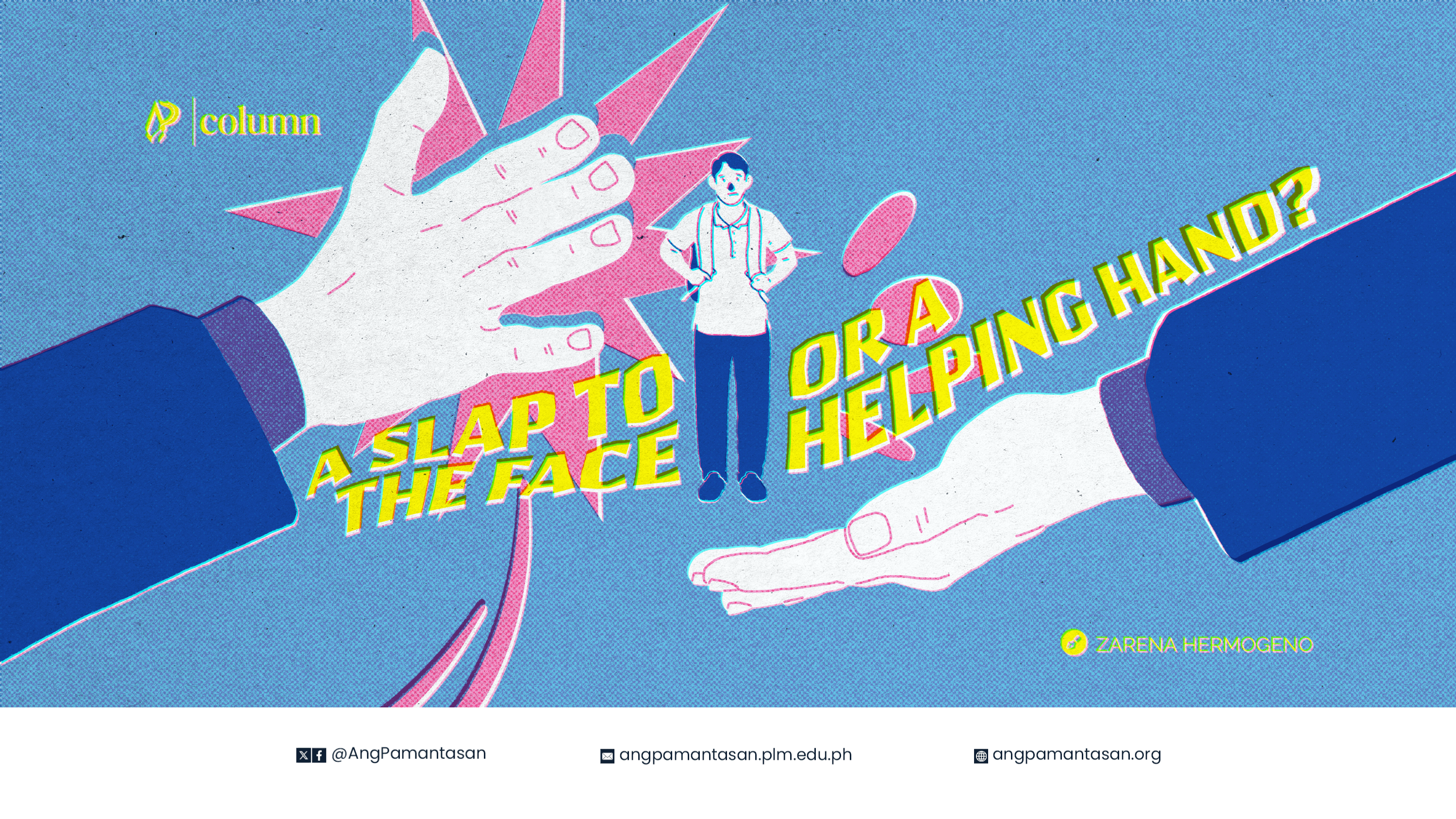A Slap To The Face or a Helping Hand?
Written by Zarena Hermogeno • Board by Junnine Tupaz | 19 September 24
The ethical side of scholarship grants is an unchartered territory. Reasonably, who does look at its flaws when the intention is to help? You don’t normally bite the hand that feeds you. Scholarship grants are made to aid in the finances of students burdened to make ends meet, but to what extent should these students prove that they are worthy to be helped?
From years of experience in applying for grants, it often works in two ways: (1) it requires a qualifying exam, if you pass, you get an incentive. If not, then it’s your problem; and (2) you fill-out forms to prove that you actually need financial aid.
Students who need these scholarships don’t usually bat an eye on the requirements. After all, it is a “need” and not a “want”, so they’ll be as compliant as they can even if it means filing more than 100 pages asking for a picture of your house, number of appliances, etc. just to prove that they are really poverty-stricken.
But along with filling out these forms, one cannot help but feel the subtle ache as you turn a page as it reminds you of a gruesome reality check: you are poor.
This is the dehumanizing part of applying for scholarships—reminding you of the harsh reality you have to accept (as if you don’t face it everyday) and proving to those who read these forms to look down, take pity on you, and extend a helping hand.
And even if it isn’t a forms-based application, it depends on the benefactors on what an exam would be and rig its content to drive a fixed number of passers.
I personally had an experience with a local scholarship program organized by a foundation in partnership with a city councilor. Its pre-qualifying exam contained 100% logic-type questions. I scored a 74.5, the passing was a flat 75. Though it was years ago, I still felt that pang of disappointment as it was just a point away from a monthly incentive and how dumb could I be to fail a logic exam?
But I realized that maybe it was not set to the typical knowledge assessment type to drive a fixed number of passers. I am very well aware that funds are always scarce to sustain a scholarship program making it reasonable enough to cut applicants short hence, they had to “raise the bar” for competent applicants to jump over.
I fully acknowledge the metric varies from each benefactor to another. Each of them have their respective qualification standards. But every student’s life is a case-to-case basis, their financial situations differ in their own ways yet one thing remains certain: they are struggling.
Hence, this serves as an open call for benefactors—from a communication student to a provider: hear us out. Integrate an interview part in the application process. Meet the applicants face-to-face, know their stories and gauge their authenticity. It would also be helpful if you could visit the homes of the applicants who qualified halfway throughout the process. In this way, you could verify for yourself.
By being grounded, you’ll know the problems that an applicant has to tread through and figure how you can actually help.
It is easier said than done, I personally don’t know if the above mentioned suggestions will change an applicant’s life. But what I know for sure is that scores or well-written pleas don't define a person, their experiences do.
So the next time you fail a scholarship grant, remember that it’s not entirely on you but the system too.
EDITOR’S NOTE: The views and opinions expressed by the opinion writer do not necessarily state or reflect those of the publication.
